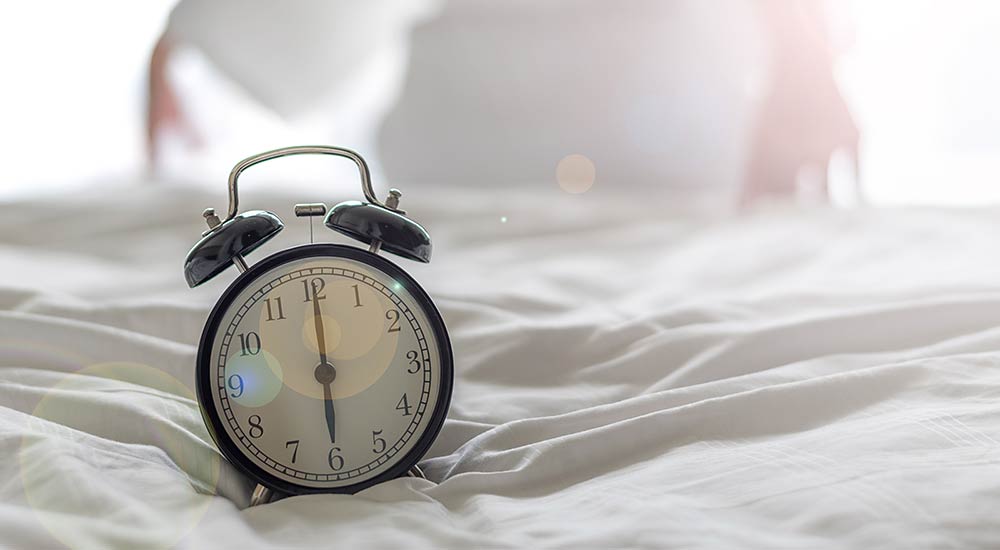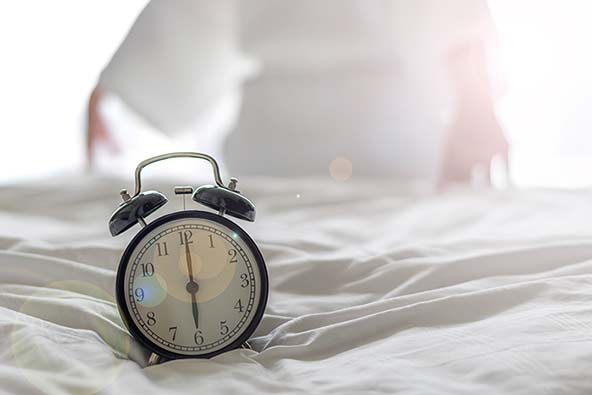For many of us, everyday life is characterized by various demands and needs. The pressures of working life compete with the desire for time and energy for family, friends and personal interests. In the midst of all this, it's easy to experience stress. It is not surprising that sleep problems have become a widespread challenge in today's society.
Prioritizing sleep is critical to one's overall health and well-being. Refreshing sleep means not only sleeping long enough, but also getting deep and undisturbed sleep. During these sleep phases, the body recovers and we wake up with renewed energy and clarity. If you are one of those who toss and turn during the night, here are 11 practical tips to help you achieve a more restful and refreshing sleep.


11 tips for a better sleep
1. Keep a regular circadian rhythm
A consistent sleep routine is essential for good sleep and increased well-being. Go to bed and wake up at the same time every day, even on weekends. It helps you regulate your internal body clock, which provides better sleep quality and is important for overall health.
2. Create calm before going to bed
Do something relaxing before bed to let your body start to unwind. It can be activities such as reading a book, taking a warm, lovely bath or why not take a quiet evening walk to fill up on fresh air.
3. Bedroom environment
Create a sleep oasis by keeping your bedroom cool, dark and quiet. Invest in a good and comfortable mattress and cozy pillows. Feel free to use blackout curtains to make it really dark.


6. Prioritize movement
Keep moving during the day and be physically active so that you have exhausted your body by the time you go to bed. We are made to move. Feel free to find a form of exercise that you like, and finish the exercise a few hours before going to bed to let your body unwind.
7. Manage stressors
If you already have difficulty sleeping, it is easy to stress yourself out about sleep and make it even more difficult to fall asleep. Focus your attention on what reduces your stress. Spend your free time doing your favorite hobby, taking a long walk or hanging out with a good friend.
8. Limit power naps
If you are tired during the day, you can take a nap lasting up to 20-30 minutes, which will not disturb your night's sleep. Avoid taking long naps, and avoid naps in the late afternoon and evening.
9. Don't drink water too late
It is important to maintain fluid balance, but remember to limit fluid intake before bed to reduce the risk of waking up to use the toilet during the night. Instead, make sure to drink properly during the day.


10. Bathe in daylight
Keep moving during the day and be physically active so that you have exhausted your body by the time you go to bed. We are made to move. Feel free to find a form of exercise that you like, and finish the exercise a few hours before going to bed to let your body unwind.
11. If you still can't fall asleep
Get up for a while and do something else, until you get tired. It's no fun tossing and turning in bed. Sometimes it can be easier to fall asleep if you get up for a while and get a chance to think about something else. But as mentioned above, picking up your phone and being exposed to its blue light can have the opposite effect when you're trying to sleep.
By reviewing your daily routine, you can create better conditions for a good night's sleep. You can also supplement these tips with supplements to help your body sleep well.
Feel free to try Närokällan Rofylld, with lemon balm that contributes to better sleep and reduces restlessness. Magnesium contributes to the normal function of muscles and nerves, which makes it a popular mineral to top up with before bed. Remember that everyone is unique, so experiment to find what works best for you. Make your sleep a priority and watch your overall well-being improve with each night of restful sleep.



